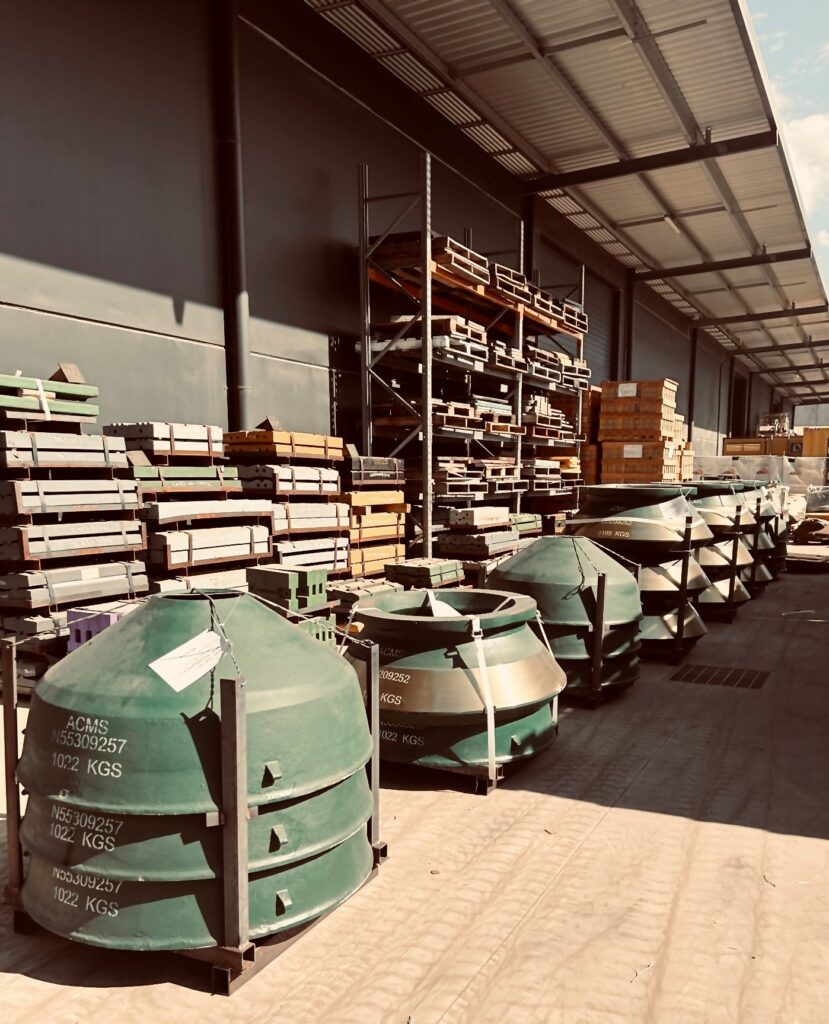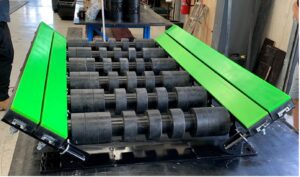Crusher parts play a crucial role in the efficiency and longevity of crushing equipment in various industries, such as mining, construction, and aggregate production. Among these components, manganese crusher liners are critical in protecting the crusher’s main frame and ensuring the proper functioning of the machine. However, these liners are not invincible and can fail due to various reasons. In this article, we will delve into the primary causes of manganese crusher liner failures and discuss each in detail.
Wear and Abrasion
One of the most common reasons for manganese crusher liner failures is wear and abrasion. Crushing operations subject liners to extreme forces and friction as rocks and ores pass through the crushing chamber. Over time, this continuous wear causes the liner’s surface to deteriorate, resulting in reduced performance and eventual failure.
Wear patterns on manganese crusher liners can vary depending on the type of material being crushed, the crusher’s settings, and the feed size. Typically, liners wear more rapidly in areas where the most significant impact and friction occur. Regular monitoring and inspection of liner wear are essential to prevent complete failure, as worn liners can lead to reduced crushing efficiency and even structural damage to the crusher itself.
Incorrect Liner Profile
Choosing the right liner profile for a specific application is crucial. Using the wrong liner profile can lead to premature failure. Liner profiles are designed to accommodate different types of feed materials and crushing conditions. Using a liner profile that doesn’t match the application can result in uneven wear, excessive wear in certain areas, and inefficient crushing.
To avoid this issue, it’s essential to consult with crusher experts or manufacturers to select the appropriate liner profile for your specific needs. Regularly inspect and replace liners when they show signs of wear to maintain optimal crushing efficiency.
Improper Liner Installation
Even the highest-quality manganese crusher liners can fail prematurely if they are not installed correctly. Improper installation can lead to uneven stress distribution, reduced liner life, and increased risk of liner failure. Common installation mistakes include not torquing bolts to the manufacturer’s specifications, uneven tightening, and failing to follow recommended installation procedures.
To prevent premature failures due to installation errors, it is crucial to follow the manufacturer’s installation guidelines precisely. Using the correct torque settings for bolts, ensuring even distribution of pressure, and inspecting the liner’s seating regularly can extend the liner’s lifespan and reduce the risk of failure.
Expired Crusher Backing Compound
Checking the expiry date of the backing product is a critical maintenance step in crusher operations. Over time, the backing compound can deteriorate, losing its structural integrity. When used past its expiration date, it can result in inadequate support for the manganese crusher liners, potentially leading to cracks in the backing material and, more importantly, causing damage to the crusher itself. Regularly inspecting the expiration date of the backing product and replacing it before it expires is essential to ensure the crusher’s longevity and the safety of its components.
Opt for a high quality backing product from a reputable dealer. We sell a range of backing products that can suit your specific requirements.
Overloading and Overfeeding
Overloading and overfeeding crushers can put immense stress on manganese crusher liners, leading to premature failure. Excessive material entering the crushing chamber can cause liner fatigue and cracking. It can also lead to a condition called “ring bounce,” where the crusher’s mantle jumps, causing uneven liner wear and possible damage to the crusher.
To mitigate the risks associated with overloading and overfeeding, it is essential to monitor the crusher’s feed rate and adjust it as needed. Implementing proper feed controls, such as choke feeding, can help maintain a consistent and manageable material flow, reducing the chances of liner failure.
Material Contamination
The quality of the feed material can significantly impact the performance and lifespan of manganese crusher liners. Contaminants like tramp iron, metal debris, or oversized rocks entering the crusher can cause severe damage to the liners. Metal objects can cause dents, cracks, or punctures in the liners, leading to premature failure.
To prevent material contamination, operators should implement effective screening and metal detection systems ahead of the crusher. Regular inspections of the feed material and the crusher’s discharge area can help identify and remove potential contaminants before they cause significant damage to the liners.
Inadequate Maintenance
Regular maintenance is essential for the longevity of manganese crusher liners and the overall crusher performance. Neglecting maintenance tasks, such as lubrication, cleaning, and routine inspections, can lead to liner failures. Lubrication is especially crucial, as it reduces friction and wear between the liners and other crusher components.
Operators should establish a comprehensive maintenance schedule that includes tasks like inspecting liner wear, checking lubrication systems, and addressing any issues promptly. Proactive maintenance can extend the lifespan of manganese crusher liners and reduce the likelihood of unexpected failures.
Conclusion
Manganese crusher liners are vital components in the crushing process, and understanding the reasons behind their failures is essential for maintaining efficient crushing operations. Wear and abrasion, incorrect liner profiles, improper installation, overloading, material contamination, and inadequate maintenance are some of the primary causes of manganese crusher liner failures.
If your in doubt, please contact a crushing parts specialist like Australian Crushing and Belting Group. We have the ability to conduct wear pattern analysis on your existing liners to determine if any modifications to the profile or metal composition can be explored. We can also provide preventative maintenance support to ensure you get the most life out of your crushing wear parts.
Overall, by addressing the factors listed in this article, operators can maximise the lifespan of manganese crusher liners, reduce downtime, and improve overall crusher performance, ultimately saving time and money in the long run.






